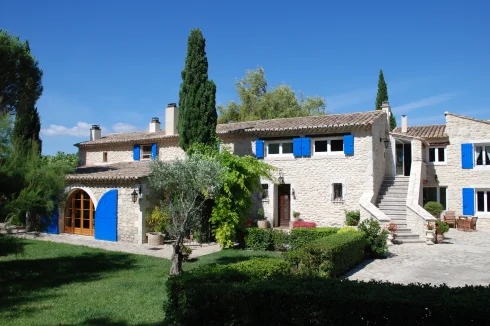French Bank Charges 2019/20
Tuesday 10 December 2019
Banking charges have remained unchanged this year but rises appear inevitable for 2020.
Last month the official observatory of bank charges (Observatoire des tarifs bancaires - OTB) published its review of charges in 2019.
Upholding a promise given to President Macron at the height of the gilets jaunes protests at the end of 2018, the report confirms that charges remained unchanged in the year.
Not only were planned increases were frozen, but reductions in some charges still went ahead as planned, including a reduction in the cost of an international debit card.
The report points out that before the moratorium the banking services price index had risen by 12% between 2012 and 2018, and 32% between 1998-2018.
Whilst charges vary between banks, the report sets out the average cost of the main services and products by the retail banks.
Several of these services are offered free of charge by a large number of banks so the averages given are a little misleading. Neither do the figures cover interest paid on overdrafts.
| Average Bank Charges | |
| Service | Charge |
| Manage Account On-line | €0.57 |
| SMS Account Alerts | €18.68 |
| International (Immediate) Debit Card | €41.64/year |
| International (Deferred) Debit Card | €43.15/year |
| Payment Card | €31.29/year |
| Withdrawals from ATM of Other Banks | €0.91 |
| Euro Money Transfer On-line | €0.0 |
| Euro Money Transfer Branch | €3.99 |
| Setting Up Direct Debit | €0.19 |
| Account Management Fee | €19.11 |
The annual charge for an international debit card ranges between €24 and €56, depending on the bank. Several on-line banks offer the cards free of charge. Charges for a Gold card are €120 per year upwards.
In terms of withdrawals from ATMs outside the bank network, around 90% of banks offer the service free of charge, although some impose a charge after several withdrawals.
The report also examined handling fees in connection with unauthorised overdrafts. Such charges (called commissions d'intervention) are controlled by law to a maximum of €8 per incident, and €80 a month, and lower for households in difficulty. The report found that most banks charged up to these maximum limits.
The same was true for bounced cheques, which are also under statutory control, up to a maxium of €50 per cheque (or €30 for small sums), a charge which most banks imposed.
However, the statutory controls do not apply across all charges, so some banks and have introduced charges that get around them.
Thus, there is widespread use of charges for letters sent to customers advising them that their account is overdrawn - lettre d’information pour compte débiteur non autorisé - up to €24.40 per letter.
Outlook 2020
With charges frozen last year, and a permanent ceiling on charges, the impact on the bottom line for the banks has not been without consequence. A number of them have come out publicly over the past few weeks stating that the position cannot be maintained in 2020.
As is occurring elsewhere in Europe, banks are also suffering from significant changes that have occurred in their business model. Due to the persistence of low interest rates, the income they earn from providing loans and in managing savings accounts has reduced significantly.
New on-line neo-banks have also established a strong foothold in the market. That is not without significant consequence for the main French banks, whose presence on the High Street remains the highest in Europe. Such has been the level of competition that the banks have been obliged to set up their own on-line subsidiaries or acquire an on-line bank.
As a result, raising some of their most obvious standard charges has proved more difficult to accomplish.
Although it remains a mixed picture, many banks are proposing increases in charges next year or direct debits and standing orders, an international debit card, and for closing and transferring certain savings accounts.
In addition, some banks are proposing to increase their administration charge (frais de dossier) for processing mortgages or personal loan applications. These costs are already frequently several hundred euros or more and can increase significantly the costs of a loan. A minimum charge of 1% of the loan is not unusual.
Other increases that also appear to be in the pipeline are to introduce or increase charges for assistance with re-issuing a bank code, or charging for a replacement lost card.
Some banks also now charge for providing paper statements, a practice that is being more widely adopted, as they seek to persuade their customers to switch to on-line statements.
It is unlikely that your bank will flag up these increases to you. You will need to go through the schedule of tariffs to establish what changes have been introduced.
Thank you for showing an interest in our News section.
Our News section is no longer being published although our catalogue of articles remains in place.
If you found our News useful, please have a look at France Insider, our subscription based News service with in-depth analysis, or our authoritative Guides to France.
If you require advice and assistance with the purchase of French property and moving to France, then take a look at the France Insider Property Clinic.





